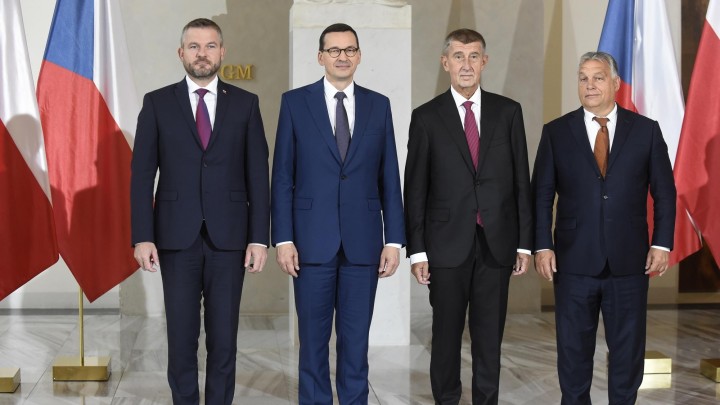
12 Nov How does Europe construct itself in the East (too)?
Institut Montaigne: How Does Europe Construct Itself in the East (Too)?
Three core members of the Think Visegrad platform, along with Stiftung Genshagen provided their analyses on the state of the European debate on the occassion of the 30th anniversary of the fall of communism in Central Europe by Institut Montaigne‘s initiative. EUROPEUM‘s Martin Michelot, GLOBSEC‘s Kinga Brudzinska, the Stiftung’s Michal Kuz and CEID’s Dániel Bartha gave their assessions on the Czech Republic, Slovakia, Poland and Hungary respectively.
It can be generally said that substantial debates on the European vision seldom penetrate the public discourse in all four countries, however, each society is unequivocally supportive of EU membership and the benefits it has brought. A medium-sized split can though be discovered between the more and less pro-European pairs of the V4 with the Czech Republic and Slovakia on one side, Hungary and Poland on the other. When it comes to EU reform, the emphasis understandably is more on the MFF-negotiations than on discussions about more or less integration recently, therefore, it can be said that day-to-day political interests and debates greatly overshadow the deliberations about visions for reforms.
As for Hungary, according to Dániel Bartha, ” debates on the future of the European Union (EU) exist only in an extremely simplified form in Hungary. While narratives differ according to political affiliation, politicians have to respect general attitudes of Hungarians towards the EU.” There is a huge support for the EU membership here, as well, however, “the last electoral campaigns have shown that the Hungarian society is deeply divided along political lines: the support for the EU among voters of the government party Fidesz decreased significantly and, by now, 29% of them would vote to leave the EU.” As for the expected EU-funds coming from the next budget, “Hungarian experts and government officials claim that the planned 24% cut in EU cohesion funds for Hungary are way beyond the level that the current level of development would suggest.” It was difficult to miss the quarrels the Hungarian government has had with the European Commission and Parliament in recent years, but taking into account some current criticism, e.g. the cut in the funds or the proposed rule of law conditionalities, “a careful examination [..] could this time prove the national government right.
The whole analysis can be read on Institut Montaigne’s website.
(Cover photo: Michal Cizek / AFP)

